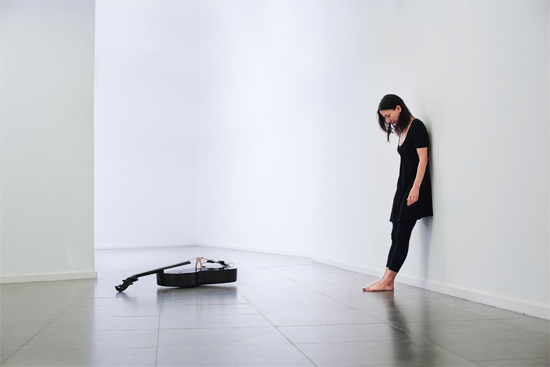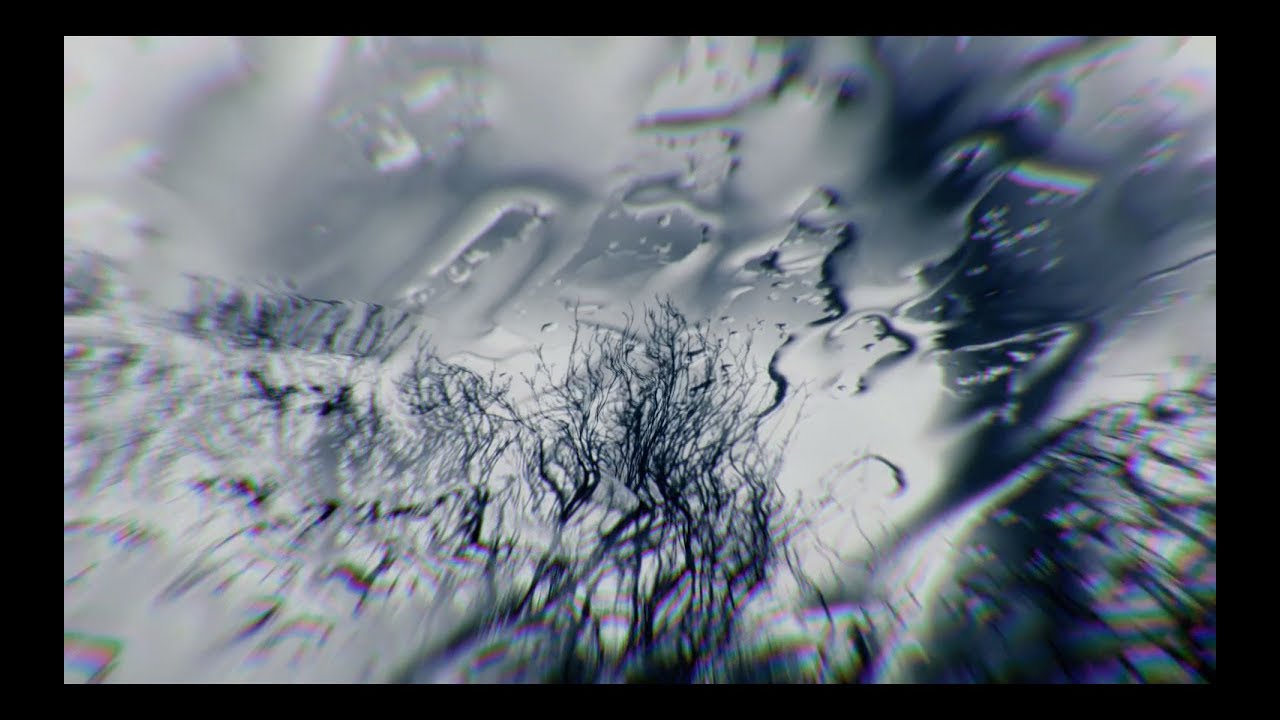The music of Canada-born, New York-based cellist and composer Julia Kent is unequivocally emotional, particularly in its most distilled form, extracted through her solo, home recorded compositions. These seemingly simple, yet refined melodies, rhythms and textures somehow reach beyond the verbal, rational circuits we use to measure degrees of empathy or to compare feelings. Instead, her music speaks without words to describe quotidian emotions that, while seeming lonely on the surface, dig deep into the listener to confirm complex, shared feelings that would otherwise remain vague through words’ clumsier negotiations.
Despite regular contributions to an expanding cosmos of collaborations since the early 90s – including being a member of Antony & The Johnsons since 2001, as well as cult Italian band Larsen and Michael Gira’s Angels of Light project, to name but a few – Kent’s solo material is a much rarer treat which only began to reveal itself in 2007 with her debut Delay. Here, in addition to her sensitive, circling strings, she incorporated found sounds; the results were poised at a dramatic crossroads where the outer physical world meets with the inner ones that attempt to understand it.
With her latest album Character out now via The Leaf Label, the Quietus caught up with Kent to discuss how her music collides ancient and modern technology, and exploring new and undiscovered sound worlds.
You’ve been playing the cello since the age of six – what led to this choice of instrument?
Julia Kent: Well, I came from sort of a musical household: my mother was a talented amateur violinist and my parents claimed that I chose the cello, but I suspect there’s a little bit of parental influence in that choice [laughs]. But it’s an instrument that I really love because it’s very much like a voice – it has the range of the human voice – and because it’s a physically big instrument, when you play it you’re really physically aware of it, you feel the vibrations of the instrument. And I love the versatility of it in terms of the sounds you can make and the range.
You then studied for many years at music school. What effect has these academic roots had on your career?
JK: I studied strictly classically for most of my childhood and adolescence, then I went to music school. And then, frankly, I fled the world of classical music, because I didn’t see a future in it for me because it’s such an intensely competitive world [where] I didn’t feel I had enough talent or drive. So after school I stopped playing for a couple of years and then I moved to New York and started playing with rock bands and playing improvised music and this whole new musical world opened up to me – that was amazing! And I discovered I could be creative with the instrument.
Since then, you’ve had a vast amount of collaborative activity, which seemed to significantly increase by 2007 – was this down to the success of your work on Antony & The Johnsons’ I Am A Bird Now two years’ earlier?
JK: Well that was a wonderful, wonderful experience, experiencing that with Antony, because he’s such an amazing artist and amazing musician and amazing person. I’d played with him for quite a long time and to see the success he achieved was just so exciting. It was really a beautiful experience… So I’m sure it was due to that. But I think also – this is perhaps too self-referential – but once I’d starting releasing solo records then I did enter this whole new world of collaboration, because people became more aware of what I could do musically.
You ‘went solo’ in 2007 with your debut album, Delay, and yet you’d been a professional musician working within group contexts since the beginning of the 90s. Why did it take so long to go it alone?
JK: Well, first of all because I was touring a lot and didn’t have the time to sit down and formulate what it was I wanted to express musically. It took me a long time to also figure out how to make things work technologically ’cause I record everything at home – I’m very self-educated about the recording process – that’s been a whole education on its own. And I think it just took me a significant amount of time in my life to feel I have something to say musically. In a way, that’s why Delay was called ‘Delay’, it’s like a little bit of a pun about how long it took.
What differences does recording at home bring to your compositional processes?
JK: Recording at home creates a certain level of comfort and intimacy that’s really important to me. It’s great to record in a studio, but studios can be a little sterile as environments and because there’s somebody else there. [Whereas] recording at home, the process becomes a really immediate personal expression instead of being mediated through another environment or another person. Does that make sense?
Yes, definitely. Recording on your own presumably involves looping and layering what you play. Do you compose in such a way as to ensure that the results can translate to a solo live setting?
JK: That’s is a very interesting and valid question, because my process is that I start with looping on a computer to figure the harmonic ideas and melodic ideas I have, and then, when I record, I kind of recreate the looping process without using a looper, because I’ve never been able to get a good enough sound using a plug-in looper in the laptop. So it’s this strange process where I start with the process that I would use live, and then I record and it becomes much more elaborate and complex. And then to recreate it live I have to pare it down it again, so it’s a kind of circular process.
A looped process in itself.
JK: Exactly!
You also incorporate found sounds into your compositions. Is this to give yourself a starting point from the ‘real world’, perhaps?
JK: I’m always trying to find sounds that will contrast a little bit with the cello landscape, so I like to use a lot of found sounds and organic sounds just because I think they’re more interesting as sounds sometimes than something that’s strictly created technologically. And they’re a little less predictable: if you process them sometimes they end up going in a really interesting direction, so, yeah, they can definitely guide the way a composition goes for me.
Your first two solo albums deal conceptually with liminal spaces – Delay with the interzone of airports and Green & Grey was about where the natural world overlaps with human society. What is it about transitional observations that most interest you?
JK: Well, I feel as though that concept of liminality is something that I’m dealing with when I’m making music. I use a lot of technology and then I use this instrument that’s also a technology, but it’s a very ancient technology – it feels like a very organic object – so I feel as though I’m always a bit liminal in my process, ’cause I’m on the edge of technology and something organic, something human.
But then your new album, Character, seems to deviate from this concept of transition to focus inwards. You’ve spoken before about your music being drawn from an internal emotional world. Is it a particularly cathartic release?
JK: I feel as though it is for me, because the concept is more internal than the other records which definitely were inspired by external spaces and this one is very, very internal for me. I feel as though, yeah, in a way, it’s the most personal record for me.
Character also, arguably, features a more diverse range of sounds than previous releases. Is this a sign that you are not necessarily moving away from the cello, but taking it with you as you explore more multi-instrumental arrangements?
JK: That’s absolutely true. I don’t think I’d ever abandon the cello but I’m definitely interested in exploring some new sound worlds.
Your music very strongly conjures up emotions without words – it smoothly evokes complex feelings…
JK: That’s what I hope that I’m trying to do, because, for me, music is just about communication of emotion.
…when people write about your work the same words – melancholy, jubilance, introspection etc. – come through. Are there any words you would use to describe your music?
JK: In terms of adjectives, melancholy I think is a legitimate description [laughs]. I’m not even sure how to describe my music as a genre, I always just describe it as instrumental music, because as soon as you start trying to use genre terms to try to describe music it becomes complicated for me.
I’ve heard you use the term ‘ambient’ before and I guess this helps signpost it as instrumental reflective music?
JK: I’m not even sure if that is a legitimate way to describe it, I used it at one point and then I went on tour with Stars of the Lid who are like the gods of ambient music. As soon as I started playing with them I was like "I’m not sure I can describe my music as ambient". [laughs]
My regard for the term ‘ambient’ goes back to Brian Eno’s Music For Airports which was music that worked in the background. However I find your music is almost the antithesis of that as it benefits from concentration, not just to the melodies and rhythms that would suit a background domain, but to the textures and what’s happening with the timbres.
JK: That’s interesting. I’m always trying to create a sound world that’s quite detailed. When I’m mixing I try to keep as much detail as possible. For me ambient music is something that’s divorced from time in a way. With a lot of ambient music there isn’t a lot of rhythmic structure, it’s really free of time, which to me is the really beautiful thing about it, like Stars of the Lid is a great example of that, like their music just flows. And for me my music is quite rhythmically-based, always. So, I guess that’s another reason not to call it ambient [laughs].
I think your music bridges the melodic/rhythmic and ambient considerations. We’ve looped back to liminality in a way!
JK: And it’s funny, ’cause the Brain Eno Music For Airports I’d never heard, and then I’d made ‘Delay’ which is all about airports, and thought "I should probably listen to that record" and, my god, it’s a masterpiece, such an amazing record, and if I’d listened to it before [recording Delay] I would never have dared to make [it] [laughs].
What’s coming up next?
In September I think I’m going to be doing a few shows with Anna von Hausswolff in Europe, possibly a couple of shows supporting her which I’m really excited about ’cause her record is amazing. I’m going to try and do some shows in the UK, so maybe I can make that happen for October/November which would be great.
Julia Kent’s Character is out now via The Leaf Label. She plays at The Vortex, Dalston, on 26th November – details here.
For more, click here to visit her website.



